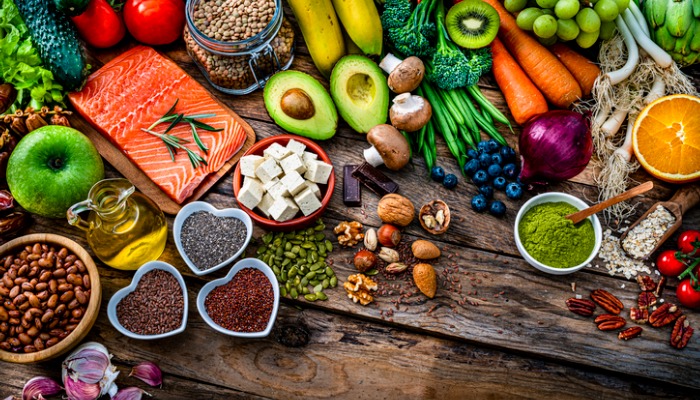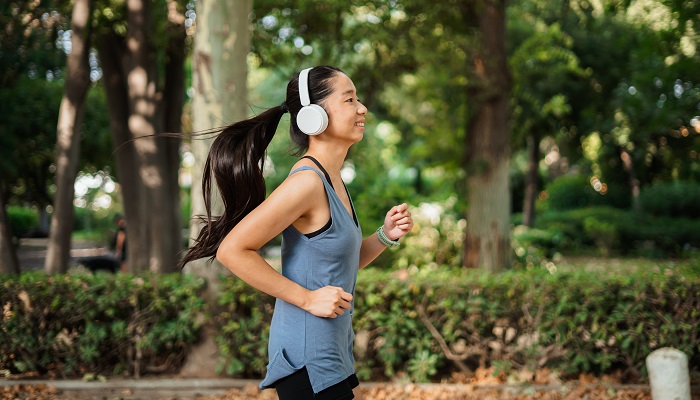Premature ventricular contractions (PVCs) are a common burden among the general population. While many heart conditions are thought to mostly affect older populations, PVCs can happen to almost anyone.
While there are many causes and risk factors for PVCs, there are also plenty of treatment options. Diet and overall lifestyle patterns are thought to impact the risk of developing PVCs.
Read on to learn more about PVCs, including why they happen and the best diet for PVCs and their related symptoms.
What are PVCs?
PVCs are a type of heart arrhythmia, or irregular heartbeat. Common symptoms of this condition include heart palpitations, skipped beats, and a pounding or fluttering feeling in the chest.
With a normal heartbeat, electrical signals are initiated by the sinoatrial (SA) node and the atrioventricular (AV) node. However, with a PVC, the heartbeat is initiated early (before the SA node gets a chance to send a signal) by the Purkinje fibers.1
Essentially, a PVC is an early, shortened heartbeat (sometimes characterized as a flutter). You may have one to three PVCs in a row before you have a normal heartbeat.
On their own, PVCs aren’t necessarily dangerous. However, excessive PVCs may increase your risk of developing a cardiomyopathy.2
What causes PVCs?
Sometimes, there is no known cause of PVCs, and they can happen randomly. However, this isn’t always the case.
Common causes of PVCs include:
- Excessive caffeine or alcohol consumption
- Tobacco or illicit drug use
- Stress or anxiety
- Electrolyte abnormalities (magnesium, calcium, and/or potassium)
- High levels of catecholamines (types of hormones)1
You may also be more likely to experience PVCs if you have certain health conditions or other risk factors such as:
- Structural heart diseases
- Anemia
- Hyperthyroidism
- Advanced age
- African-American descent
- Male gender
- Hypertension1
Other causes and risk factors may be possible for PVCs. Additionally, your diet may play a role in controlling PVCs (or making them worse).
What is the best diet for PVCs?

You may be able to reduce or prevent PVCs through your diet. The best diet for PVCs is a heart-healthy one.
The American Heart Association (AHA) suggests a heart-healthy diet to manage or avoid cardiovascular disease. For heart health, The AHA recommends that you consume the following:
- Plenty of fruits and vegetables
- Whole grains and whole grain products
- Lean protein (like legumes, nuts, soy, fish, low-fat dairy products, and lean meats)
- Healthy fats and oils
- Foods that are minimally processed
- No sodium or low-sodium foods
- Foods that are free of or low in added sugars
- Minimal alcohol3
Fortunately, a heart-healthy diet is not restrictive and is relatively easy to follow compared to many other diets. Variety is key when it comes to a heart-healthy diet. So, be sure to incorporate different fruits, vegetables, whole grains, healthy fats, and lean proteins every day.
Foods to avoid if you have PVCs
Some foods may make PVCs worse. Therefore, you may need to limit or avoid certain foods if you have PVCs.
Although there isn’t solid evidence for PVCs specifically, we do know that some foods may make heart arrhythmias (like PVCs) worse. These foods include:
- Caffeine
- Alcohol
- Very spicy foods
- Red meat
- Highly processed foods that tend to be high in added sugar
- Sugary sodas4
It’s also best to avoid any foods that you know trigger a PVC. These can vary from person to person. A healthcare provider can help you determine if you have food triggers.
Remember, there isn’t strong evidence that these and other foods increase your risk of PVCs. It’s best to take precautions and talk with a healthcare provider to learn more.
Other tips for controlling PVCs

If you have PVCs, it’s recommended that you follow an overall healthy lifestyle pattern. Doing so may reduce the number of PVCs you experience as well as your risk for more serious heart issues.
Aside from a heart-healthy diet, there are additional steps you can take to manage PVCs. These include:
- Engaging in regular physical activity
- Avoiding excess alcohol and caffeine
- Reducing stress and anxiety in your life
- Getting plenty of sleep
- Taking care of other health conditions, like high blood pressure, that may trigger PVCs
- Getting regular health check-ups5
Sometimes, medications may be required to treat frequent or serious PVCs. In these cases, your doctor may prescribe beta-blockers, antiarrhythmics, or calcium channel blockers.5
Some people with severe PVCs may benefit from a procedure called a catheter ablation. In this procedure, the area of the heart tissue causing arrhythmias is safely destroyed. A catheter ablation is meant to restore the normal rhythm of your heart.6
Speak with a doctor or other qualified healthcare provider for other ways to control PVCs.
When to see a doctor for PVCs
For many people, PVCs are mild and manageable. However, in some cases, it may be necessary to see a doctor for PVCs.
You should always call a doctor immediately if you have severe symptoms associated with PVCs. Such symptoms may include frequent heart palpitations, chest pain, shortness of breath, or lightheadedness.
In addition, it’s recommended that you see a doctor if you start having noticeably more frequent or intense PVCs. You should also seek a doctor’s care if you experience painful PVCs.
Summary
PVCs, or premature ventricular contractions, are a common condition in which the electrical signal that starts a heartbeat is initiated in the wrong place. This causes a premature heartbeat.
There is some evidence that the best diet for PVCs is a heart-healthy diet. For many people, PVCs are not severe and can be managed with an overall healthy lifestyle.
Various treatment options are available for people with frequent or serious PVCs. A healthcare provider can help you decide if any medications or procedures are necessary.
 About Brittany Lubeck
About Brittany Lubeck
Brittany Lubeck is a registered dietitian and nutrition writer. She has a Bachelor of Science in Dietetics, a Master of Science in Clinical Nutrition, and began her career as a clinical dietitian. Brittany has always enjoyed research and loves that she can help people learn more about nutrition through her writing.
Sources:
Farzam, Khashayar and John R. Richards. Premature Ventricular Contraction. (Treasure Island, FL: StatPearls Publishing, 2023).
Koester, C., A. M. Ibrahim, et al. “The Ubiquitous Premature Ventricular Complex.” Cureus 1, no. 12 (2020): e6585.
“The American Heart Association Diet and Lifestyle Recommendations.” American Heart Association Inc. Heart.org.
“8 Foods to Avoid Eating Frequently if You Have Heart Palpitations.” Carda Health Inc. Cardahealth.com.
“Premature Ventricular Contractions.” Cedars-Sinai. Cedars-sinai.org.
“Ablation for Arrhythmias.” American Heart Association Inc. Heart.org.